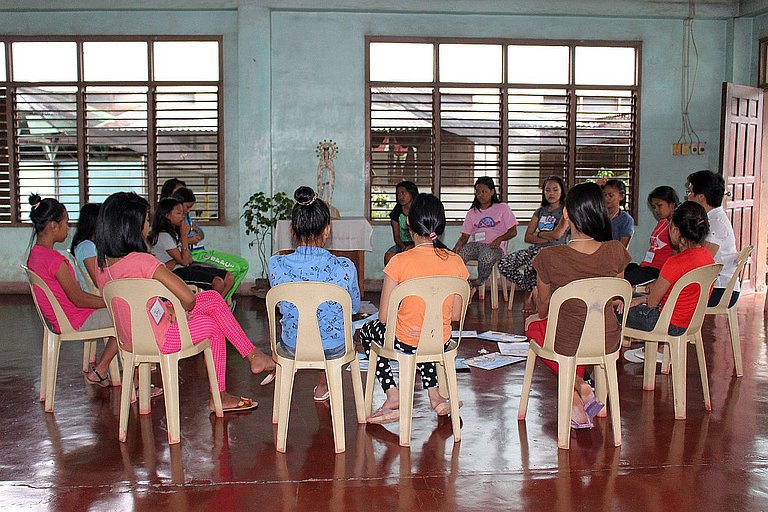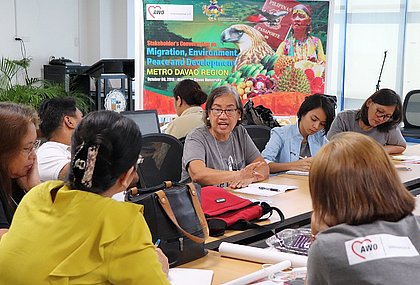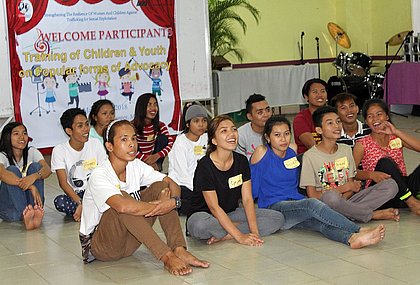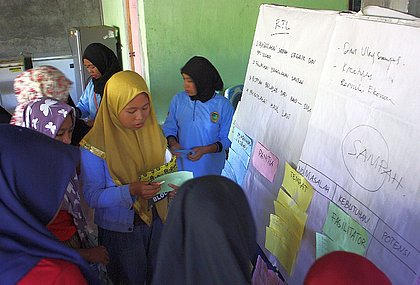Although prostitution is illegal in the Philippines, an estimated 800,000 women and girls are affected. Poverty, unemployment and poor socio-economic prospects make them easy victims of traffickers - who force them into prostitution. Especially in times of crises, the number of victims increases. In Davao City alone, the capital of Mindanao Island, which is characterized by conflict and poverty, it is estimated that there are around 4,000 prostitutes, 40 percent of whom are under the age of 18.
Our partner organization, Talikala looks after girls and women aged 12 to 68. Those that seek Talikala’s help have endured traumatizing and/or stressful situations – i.e. abuse, violence, contracted sexually transmitted diseases, unwanted pregnancies, abortions and drug abuse. Together with our partner organization - Talikala, we act to address the vulnerability of women and children to human trafficking for sexual exploitation. In addition, weimplement measures in nine selected communities in the city of Davao City to combat the increasing number of cases of sexual abuse on the Internet.
Strengthening groups and communities
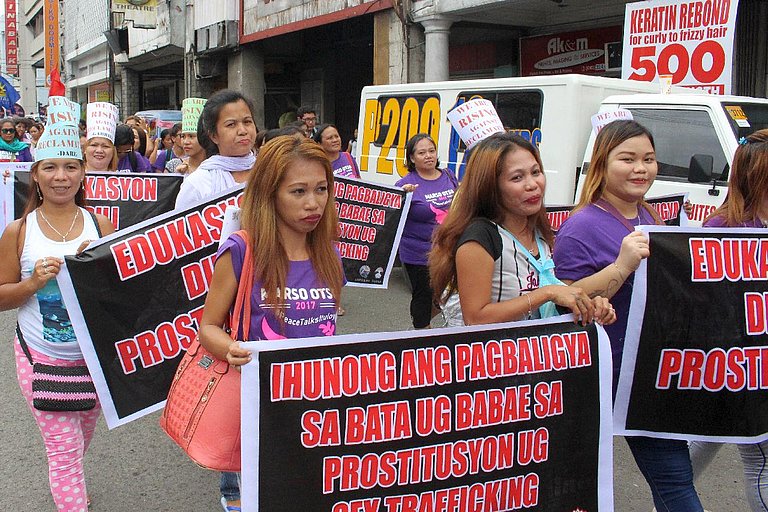
Our partner organization, Talikala was founded in 1986 by former prostitutes, among many others. In the local language, Talikala means "chain" or "bondage": the organization is committed to helping victimized girls and women in Davao City break free from the chains of exploitation and oppression. With a team of trained social workers, Talikala directly takes care of prostitutes, abused women and girls who have gotten into human trafficking. They also organize community groups, provide information and education, network and lobby. Talikala fights for its vision of "gender-equitable relations between women and men who enjoy equal rights and full participation in the development of their society".[SC1] AWO International’s partnership with Talikala aims to enable the target communities to fight against sexual exploitation on their own in the long term.
Men also fight for women's rights and against exploitation
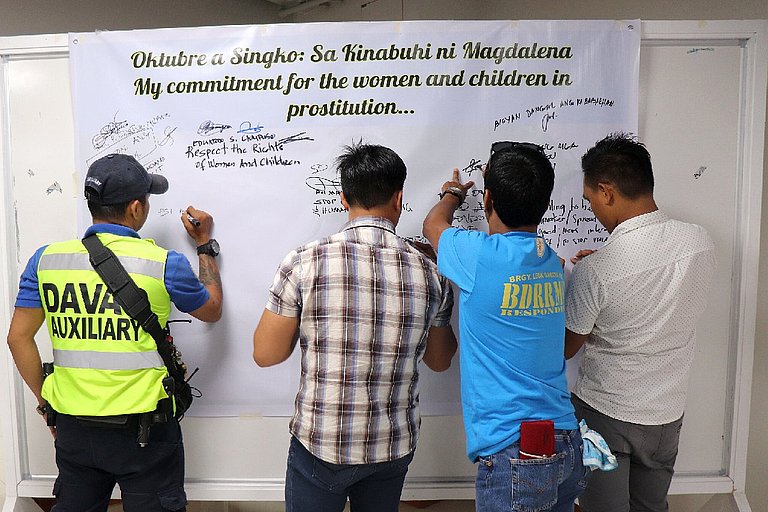
Talikala has also been using a new relatively new approach for some time now to increasingly involve men in its project work to combat sexual exploitation from all sides - and has been very successful in doing so. When Talikala brought together a group of men in the Lapu Lapu project community for a unique discussion, it opened the eyes of many participants. "After the first meeting we asked for another one and immediately decided where and when it would take place," recalls 53-year-old Bibing, who is himself a father and husband. These men have since formed a registered volunteer group and are now called ‘Men in Valuable Partnerships with Women and Children’ (MVPWC). With the support of our project, they actively fight for the protection of women in Davao City, participate in campaigns to raise awareness, and offer informal counselling. "Now we know the laws and guidelines and understand that human rights are universal. When we hear or see that something bad is happening in a household, we immediately draw the attention of the Barangay Captain so that he can intervene according to the guidelines - we talk to the perpetrators, give them advice or man-to-man talks under the guidance of the social workers of Talikala," reports Bibing.
Aside from MVPWC, three other social structures are also being strengthened under the project – specifically a children’s organizations, parents and community resident organizations, and Lawig Bubai (Organization of Trafficked and Prostituted Women and Girls). Activities geared towards strengthening the structures include seminars on rights of women and children and on trafficking and online sexual abuse, life skills training, para-legal work, documentation, community education and processing sessions like therapy, play therapy, and process counseling for trafficked and exploited women and girls.
Projectinfo
| Project | Empowering Self-Help Organizations and Communities in the Protection of Women and Children Against Trafficking in Persons and Online Sexual Abuse and Exploitation |
|---|---|
| Place/Region | Davao City, in municipalities/Barangays: Lapu-lapu, Leon Garcia, Sasa, Matina Aplaya, Mintal, 5-A, 76-A, 22-C und Kapitan Tomas Monteverde |
| Partner | Talikala |
| Target group | Trafficked and vulnerable girl-children, women, and youth; their parents; male advocates living in identified project areas; barangay officials; and other service providers |
| Activities |
|
| Duration | 2021-2022 |
| Budget | 70.000 Euro p.a. |
| Sponsor | BMZ |
